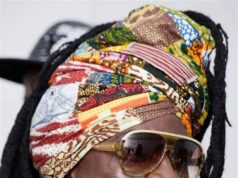Introduction
The dynamic relationship between Western music and African culture is a complex tapestry of influence, adaptation, and fusion. As the world becomes increasingly globalized, Western music — through genres like pop, hip hop, rock, R&B, and electronic dance music — has significantly impacted African musical traditions, especially among the youth. This influence is visible not only in sound and style but also in cultural identity, fashion, and societal values.
1. Historical Context
The relationship between Western and African music dates back to the colonial era, where European missionaries and settlers introduced hymns, classical music, and instruments such as the piano, violin, and guitar to African societies. Post-independence, Western music began to spread rapidly across the continent, aided by radio, television, and later the internet. African artists, while deeply rooted in traditional rhythms and storytelling, started experimenting with Western harmonies and production techniques.
2. Musical Fusion and Innovation
One of the most significant outcomes of Western influence has been the birth of hybrid musical genres. Afrobeat, pioneered by Fela Kuti, combined traditional Nigerian music with jazz and funk. In more recent years, genres like Afropop, Afro-house, and Amapiano have emerged, mixing African rhythms with Western electronic beats and vocal styles. Artists like Burna Boy, Wizkid, and Tiwa Savage seamlessly blend Western musical elements with African identity, achieving global acclaim while staying connected to their roots. In Ghana, the emergence of the hiplife genre is also a mix of highlife and pop pioneered by Reggie Rockstone had a strong global influence as well.
3. Impact on Language and Lyrics
Western music has introduced English, French, and other colonial languages more deeply into African songwriting, especially in urban areas. This linguistic shift has allowed African musicians to reach broader audiences but has also raised concerns about the erosion of indigenous languages. However, many contemporary artists now mix native tongues with English or French, creating multilingual tracks that reflect Africa’s diverse identity.
4. Influence on Fashion and Lifestyle
Music is inseparable from fashion, and Western music’s influence is evident in African fashion trends. Hip hop culture, in particular, has inspired streetwear, jewelry, and dance styles across African cities. This influence has extended to lifestyle choices, such as attitudes toward fame, gender roles, and consumer culture, often modeled after Western celebrities.
5. Cultural Challenges and Criticism
While Western music has inspired innovation, it has also sparked debate. Critics argue that the dominance of Western styles can overshadow traditional music forms, leading to cultural homogenization. Concerns also arise around themes in Western music — such as materialism, violence, or hypersexualization — influencing young African audiences in ways that may conflict with traditional values.
6. The Digital Age and Global Collaboration
With platforms like YouTube, TikTok, and Spotify, African artists now collaborate with Western counterparts more than ever. These partnerships not only bring international exposure but also encourage cultural exchange. However, they also highlight the imbalance in global music economics, where African artists often face challenges in accessing the same financial and legal protections as their Western peers.
Conclusion
The influence of Western music on African culture is a multifaceted phenomenon. While it has led to creative innovation, global recognition, and cultural exchange, it also presents challenges related to cultural identity and preservation. Ultimately, African musicians and communities continue to shape this influence on their own terms, blending tradition and modernity in ways that reflect the continent’s unique and evolving cultural landscape.
Written and compiled by;
DAVID KODJO OTCHERE
CEO @PEDALPOINT MUSIC INSTITUTE









